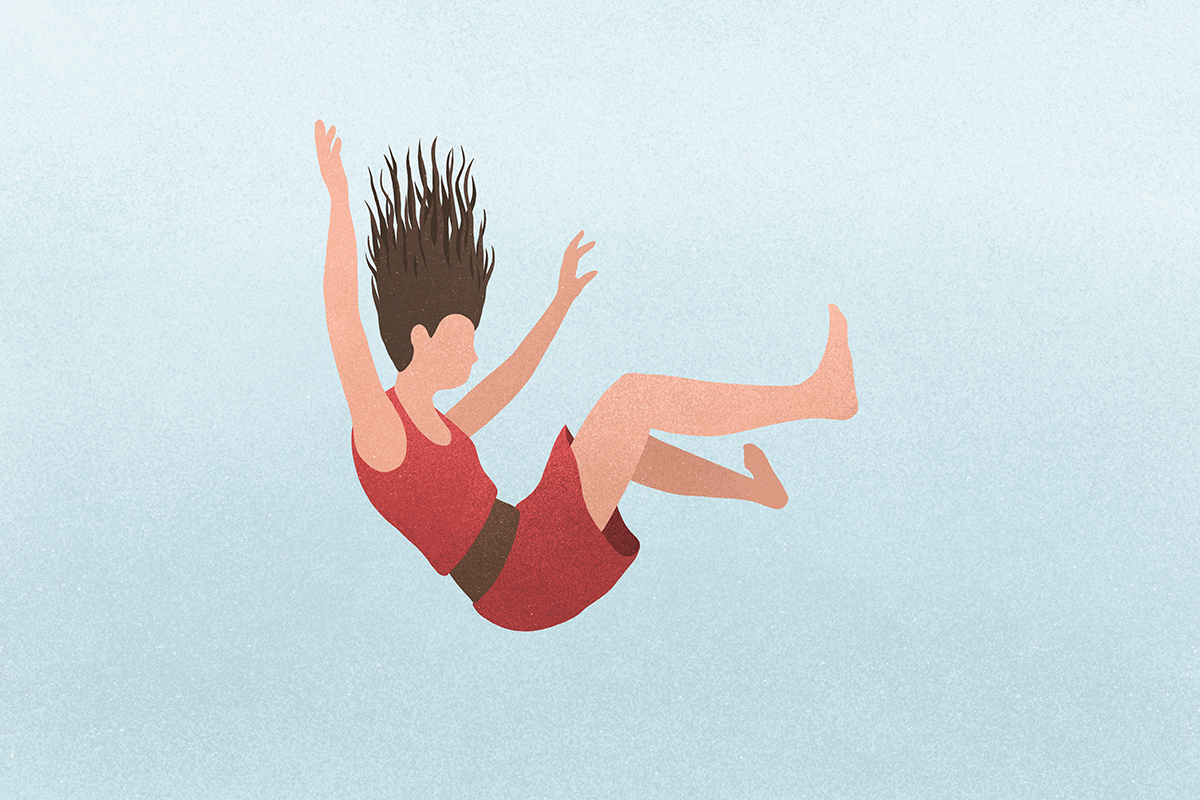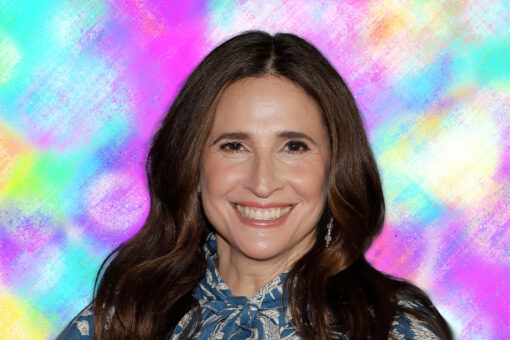I was on the floor again. Rocking back and forth, trying my best to breathe, panicked tears streaming down my face. At that point in my life anxiety attacks were a routine part of my day, as if I had a Google calendar event on my schedule:
Get up for class: 8:30 a.m.
Finish writing a paper: 11 a.m.
Go to work 3 p.m.
Anxiety attack: 10 p.m.
It’s hard to describe how those moments felt. Seconds seemed like hours, minutes seemed like days, hours seemed like years. Most frightening was the feeling of being alone — a nasty, monstrous, all-enveloping cloud of isolation and worthlessness. It became increasingly difficult to believe that others around me had their own hardships. Everyone I passed on the street seemed put together. There was no way there were others like me. I was obviously just weak.
At my Jewish high school, I remember learning about tikkun olam and the concept of repairing the world. But I felt so helpless to the task of making the world a better place — if I could barely handle my own issues, how could I help others? I never considered that repairing the world starts with repairing myself.
My understanding of mental health as a child was limited. It was always an extremely guarded subject in my community growing up. The only information about mental illness and treatment I received was largely from pop culture. I knew that Frasier Crane from Cheers was a psychiatrist. Fictional characters who existed in sitcom worlds went to therapy, but it didn’t seem that people in my real life did.
“Therapy” was a word whispered among gossipers, not something that was spoken about openly in my community. When I was about 12, someone I knew mentioned offhandedly about attending therapy regularly, and I was shocked. They seemed so “normal,” I couldn’t wrap my head around it. Rather than seeing therapy as a road to progress, I saw it as an indication that there was something wrong with that person.
Eventually, thankfully, I found a Jewish community that taught me the importance of taking care of yourself, and the importance of shedding the stigma of therapy and mental health treatment. It was this Jewish community that quite literally saved my life in college.
I attended a huge state school in the south, so, inevitably, the Jewish students banded together. We created a safe space for each other in our Hillel building. This space become home to me. There was seldom a day you wouldn’t find me there, just existing in a place where I felt peace. These people became my social network, my best friends, and my lifeline. I had never been in a place where everybody was so open and encouraged to speak up about their hardships. After an intense exam, we were each others decompressors. And after the Pittsburgh synagogue shooting last year, we were each other’s shoulders to cry on.
In that space we existed for each other, yet it still took some time for me to realize just how much I needed their support.
During my last semester, I reached my breaking point. Despite the community I found at Hillel, I felt myself slipping away, as if the real Elana was fading from existence. After days of walking up to her office and turning away right before walking in, I finally gathered the courage to speak to my Hillel director about it. When I sat down opposite her the floodgates opened. I told her everything: I wasn’t sleeping, I was binge eating, my body was constantly aching, I hadn’t felt happy in a long time. With each word I spoke, I became more scared. Nasty thoughts erupted in my head: She’s going to think I’m insane, that I can’t handle things on my own. She’s going to be scared of me, or upset that I’m weak.
I will never forget her response.
She said, “You aren’t broken. You’re whole, and you just need help to feel that way.”
This concept was radical to me. And so deeply Jewish: to intrinsically value your life. It is the heartbeat of our people, to realize that we are all created b’tzelem elohim (in God’s image).
The Talmud states, “Whosoever saves a single life, it is as if he saved an entire world.” I always used to view this quote in an outward sense, but have come to realize that it is just as poignant as an inward facing prescription. Once you realize that the woman next to you is born with divine value, you have to realize that you are as well. You are that single life worth saving, just as much as the next person. And if you have the chance and the support to save yourself, you have saved an entire world.
I’ve carried this notion with me ever since. My Hillel director helped me find the courage to go to my first therapy session, and I have been regularly attending ever since. After graduating, I got a job across the country despite being afraid of the distance from my comfort zone. As I have started to repair my personal world, my body and my spirit, things have started to fall into place. And I’m so grateful for my Jewish community for that.
Image via Malte Mueller/Getty Images



